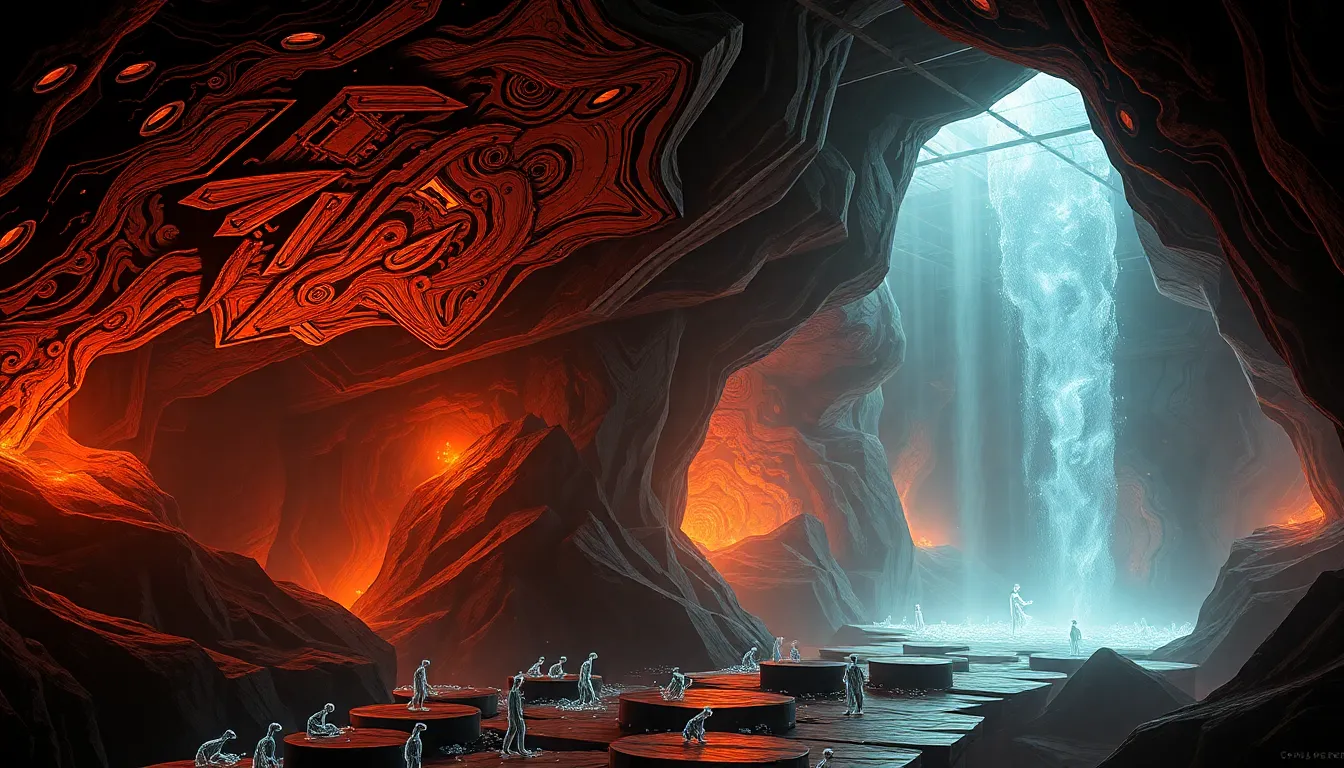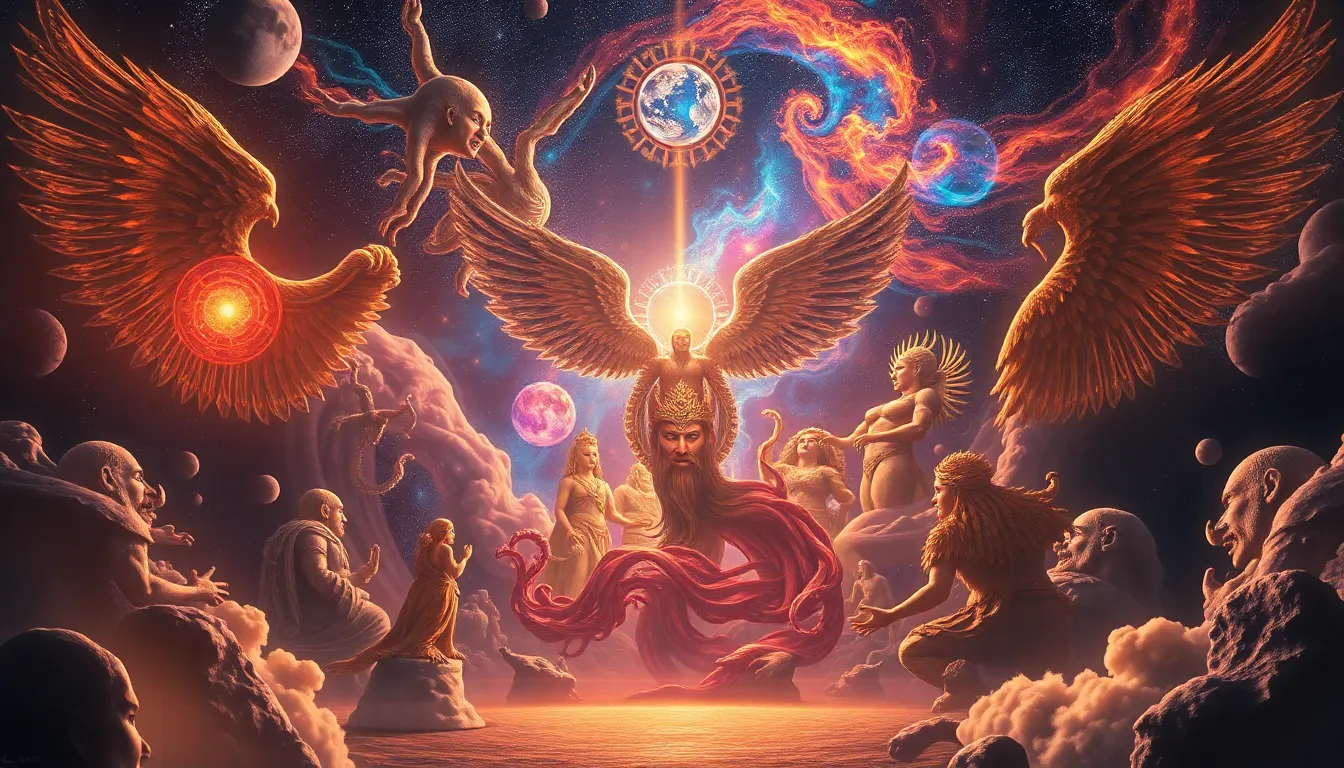Cosmic Warriors: The Most Intense Mythological Battles
1. Introduction to Mythological Battles
Mythology serves as a profound reflection of human experience, weaving narratives that depict the eternal struggle between good and evil, order and chaos. Central to these narratives are the cosmic battles that take place among divine beings, often referred to as cosmic warriors. These conflicts not only entertain but also provide insights into the values and beliefs of the cultures from which they originate.
The role of cosmic warriors varies across cultures, embodying traits such as bravery, wisdom, and a commitment to uphold cosmic order. From the Greek pantheon to the deities of the Hindu epic, these figures are often at the forefront of mythological conflicts that shape the universe.
2. The Concept of Cosmic Warfare
Cosmic warfare refers to battles that transcend the earthly realm, often involving deities and cosmic forces. These battles are characterized by their grand scale, epic consequences, and the involvement of supernatural beings. Unlike terrestrial battles, which may be fought over land or resources, cosmic battles often revolve around fundamental principles—such as the balance of power and the fate of the universe.
- Characteristics of Cosmic Battles:
- Involvement of divine entities.
- Significant impact on the cosmos.
- Symbolism of larger philosophical themes.
- Differences from Terrestrial Battles:
- Focus on cosmic order versus earthly concerns.
- Greater stakes that affect existence itself.
- Use of supernatural powers and abilities.
3. Key Mythologies Featuring Cosmic Warriors
Various mythological traditions around the world showcase cosmic warriors engaged in epic battles. Here’s an overview of some of the major mythologies that highlight these intense conflicts:
- Greek Mythology: Features the Titanomachy and the battles of Olympian Gods.
- Norse Mythology: Centered around Ragnarok and the struggle against giants.
- Hindu Mythology: Encompasses the Mahabharata and various divine confrontations.
- Egyptian Mythology: Involves the battles between Set and Horus.
4. The Titanomachy: Clash of Titans and Olympians
In Greek mythology, the Titanomachy is the legendary war between the Titans, led by Cronus, and the Olympian gods, led by Zeus. This monumental conflict lasted for ten years and resulted in the overthrow of the Titans, establishing the Olympian gods as the new rulers of the cosmos.
Key figures in this battle include:
- Zeus: The king of the gods, representing order and justice.
- Cronus: The leader of the Titans, symbolizing tyranny and chaos.
- The Titans: A group of powerful deities who opposed the Olympians.
The outcome of the Titanomachy significantly altered the cosmic order, leading to the reign of Zeus and his siblings, which brought stability to the universe after a period of turmoil.
5. Ragnarok: The Norse Apocalypse
Ragnarok, often referred to as the Norse apocalypse, is a series of events in Norse mythology that culminates in a catastrophic battle resulting in the death of many gods, including Odin and Thor. This battle signifies the end of the current world and the beginning of a new one.
Key warriors in this epic struggle include:
- Odin: The chief god, who sacrifices himself for knowledge.
- Thor: The god of thunder, known for his might and bravery.
- Loki: The trickster god, whose actions lead to chaos.
- The Giants: Enemies of the gods, representing primal chaos.
The consequences of Ragnarok are profound, leading to the destruction of the known world and the rebirth of a new cosmos, encapsulating themes of renewal and cyclical existence.
6. The Mahabharata: The Great War of Kurukshetra
The Mahabharata, one of the two major Sanskrit epics of ancient India, features the Great War of Kurukshetra, a monumental battle between two factions of a royal family—the Pandavas and the Kauravas. This epic conflict is not just a fight for power but also a profound exploration of duty (dharma) and righteousness.
Prominent warriors in this legendary battle include:
- Arjuna: A master archer and a key warrior of the Pandavas.
- Krishna: Arjuna’s charioteer and divine guide, representing divine wisdom.
The Mahabharata delves deep into themes of morality, justice, and the struggles inherent in human nature, making it a cornerstone of Indian philosophy and spirituality.
7. The Battle of the Gods: Egyptian Mythology
Egyptian mythology is rich with tales of divine conflict, one of the most notable being the struggle between Set and Horus. This battle represents the eternal conflict between good and evil, chaos and order, as Set, the god of chaos, seeks to usurp power from Horus, the god of order.
The implications of their battle extend beyond personal rivalry; they symbolize the cosmic struggle for balance in the universe. Key takeaways from their conflict include:
- Horus: Represents justice and rightful rule.
- Set: Embodies disorder and chaos.
- Symbolism: Their battle illustrates the larger themes of good vs. evil that resonate throughout human history.
8. The Role of Celestial Beings and Cosmic Forces
In many mythological battles, celestial bodies such as stars and planets are depicted as active participants or symbols influencing the outcomes. These cosmic forces often represent the broader universe’s will, adding layers of meaning to the conflicts.
For instance, in the Mahabharata, celestial weapons wielded by warriors are often associated with specific constellations, and their movements in the sky are believed to influence the outcome of battles. This intertwining of cosmic phenomena with mythology emphasizes the belief that human actions are part of a larger, interconnected universe.
9. Themes and Lessons from Cosmic Battles
Cosmic battles encapsulate several enduring themes that resonate across cultures and time periods. Some of these themes include:
- Good vs. Evil: The eternal struggle where cosmic warriors embody these forces.
- Order vs. Chaos: Battles often revolve around restoring balance to the universe.
- Destiny vs. Free Will: The tension between predestined outcomes and individual choices.
These mythological conflicts impart moral and philosophical lessons, encouraging humanity to reflect on their values and the nature of existence.
10. Conclusion: The Lasting Impact of Cosmic Warriors
The mythological battles of cosmic warriors have left an indelible mark on storytelling and cultural narratives across the globe. From ancient texts to modern films and literature, these epic conflicts continue to inspire and resonate with audiences today.
The relevance of cosmic warriors in contemporary pop culture underscores the timeless nature of these themes, reminding us of the ongoing struggle between good and evil and the quest for balance in our lives. As we engage with these narratives, we connect with the profound questions of existence that have captivated humanity for millennia.



